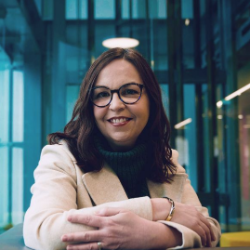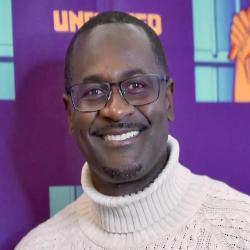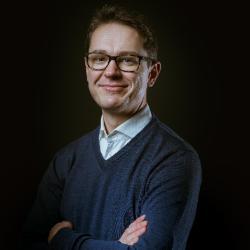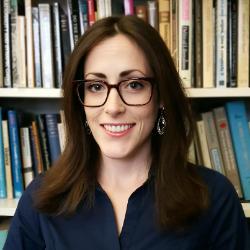Keynote Speaker
Professor Shannon Vallor is the Baillie Gifford Chair in the Ethics of Data and Artificial Intelligence at the Edinburgh Futures Institute (EFI) at the University of Edinburgh, where she is also appointed in Philosophy. She is Director of the Centre for Technomoral Futures in EFI, and co-Director of the BRAID (Bridging Responsible AI Divides) programme, funded by the Arts and Humanities Research Council. Professor Vallor's research explores how new technologies, especially AI, robotics, and data science, reshape human moral character, habits, and practices. Her work includes advising policymakers and industry on the ethical design and use of AI. She is a standing member of the One Hundred Year Study of Artificial Intelligence (AI100) and a member of the Oversight Board of the Ada Lovelace Institute. Professor Vallor received the 2015 World Technology Award in Ethics from the World Technology Network and the 2022 Covey Award from the International Association of Computing and Philosophy. She is a former Visiting Researcher and AI Ethicist at Google. In addition to her many articles and published educational modules on the ethics of data, robotics, and artificial intelligence, she is the author of the book Technology and the Virtues: A Philosophical Guide to a Future Worth Wanting (Oxford University Press, 2016) and The AI Mirror: Reclaiming Our Humanity in an Age of Machine Thinking (Oxford University Press, 2024).
Session Speakers
Greg Eskridge is a founding member of the KALW's Uncuffed radio program and podcast. For over a decade in San Quentin, Greg fostered an atmosphere of professionalism and dedication which led to the program producing great content and winning numerous awards. On July 23, 2024, Greg was released from San Quentin prison after serving 30 years and 25 days. A few months later, Greg began working full-time as Uncuffed’s first Leadership Fellow, preparing him for leadership roles in the program. Greg has continued to elevate the voices of system-impacted individuals.
Mathieu Guillermin is associate professor of philosophy and ethics of science and technology at the CONFLUENCE : Sciences et Humanités research unit (EA 1598) of UCLy (Lyon Catholic University). He holds a PhD in Physics and a PhD in Philosophy. One of his main research interests is the question of the articulations between ethics, scientific research and technological developments. He focuses notably upon philosophical and ethical questions raised by new digital technologies (big data, artificial intelligence, robots …). He also coordinates NHNAI international research program focused upon the exploration of the idea of “Humanism” in the time of Neurosciences and AI.
Neta Haiby leads Security for AI at Microsoft. She is a product leader with a passion for developing impactful AI services at a global scale. She has deep experience in AI, enterprises, and accelerating the adoption and positive impact of AI in organization by bringing together the latest innovations into products that enable the use of new AI technologies. Prior to her current role Neta was the group Product Manager of Azure OpenAI and Azure AI OCR & Document Intelligence products and was also the CTO of Microsoft Venture Accelerator.
Susan Kennedy is an Assistant Professor of Philosophy at Santa Clara University. She earned her PhD from Boston University and previously held a postdoctoral fellowship in Harvard’s Embedded EthiCS program where she collaborated with an interdisciplinary team to integrate ethics into the computer science curriculum. Her research areas include ethics of technology and bioethics, and her work focuses on the ethical and social impacts of emerging technologies ranging from artificial wombs to artificial intelligence. She has been actively involved in the TinyML community, including the development of EdX courses and presentations at international workshops with the aim of making machine learning more accessible to all.
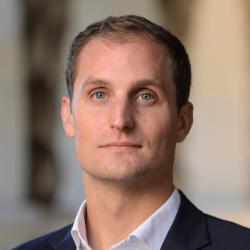
Benjamin Larsen Ph.D. is AI and Machine Learning Project Lead at the World Economic Forum’s AI Centre in San Francisco. He co-leads work on the Governance Alliance, a multistakeholder effort that guides AI policy, development and application globally. Benjamin holds a PhD in AI governance from Copenhagen Business School and held visiting researcher positions at the Chinese Academy of Sciences and Stanford University. His research spans AI governance, from technical dimensions to broader implications for policy and society.
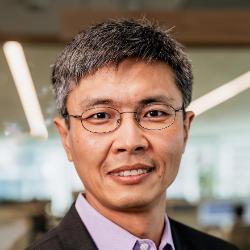
Daniel Lim is a Senior Director on the Salesforce Futures team in the Office of the CEO. In this role, he investigates possible scenarios and corporate strategies that help business executives, government leaders, and stakeholders to anticipate, imagine, and shape the future. His main focus has been on the implications of artificial intelligence on Salesforce, the technology industry, and society. Daniel is a member of Salesforce’s Ethical Use Advisory Council. Prior to this role, Daniel was a fellow at the World Economic Forum’s Artificial Intelligence platform where he led the responsible and ethical technology initiative. He also led Salesforce’s experience design consulting services where he advised Fortune 100 companies on their digital transformation initiatives. Daniel joined Salesforce in 2017 when his design and innovation consultancy, Sequence, was acquired. As a partner of Sequence, he was responsible for the strategy, client services, and engineering functions while overseeing relationships with Apple, Chevron, and the International Monetary Fund. Earlier in his career, Daniel held leadership roles at McKinsey & Company, Proxicom, and the White House Office of Science and Technology Policy during the Clinton administration. Daniel holds a bachelor's degree in physics, and a graduate degree in public policy from Carnegie Mellon University, in Pittsburgh PA.
Jane Pak is Co-Executive Director at Refugee and Immigrant Transitions; Adjunct Professor in the Master in Migration Studies program at the University of San Francisco; and holds a public seat on the State Advisory Council for the Refugee Program Bureau, California Department of Social Services. Her work is informed by Critical Refugee Studies, liberatory education, and her family history of forced migration, resistance, and community care. Jane is most energized when engaging with diverse communities and knowledges towards collective liberation and well-being. She brings 25 years of experience in education in various contexts across nonprofit, higher education, government, and business sectors. She holds a Doctorate in International & Multicultural Education from the University of San Francisco; MA in International Educational Administration and Policy Analysis from Stanford University; and MBA from Clarkson University.
Irina Raicu directs the Internet Ethics program at the Markkula Center for Applied Ethics. She is a certified information privacy professional, and her work addresses a wide variety of topics—from online privacy to social media’s impact on society, from the digital divide to the ethics of encryption, and the many ethical issues associated with artificial intelligence. Raicu was a member of the Partnership on AI's first working group on Fair, Transparent, and Accountable AI, and she served as a member of the initial cohort of the city of San Jose’s privacy advisory task force. Raicu has authored and co-authored a variety of resources published by the Markkula Center, including the compendium “Ethics in Technology Practice,” and, together with other center staff, she has worked with multiple companies in the process of developing their responsible tech/responsible AI policies and processes. Raicu was coordinator for the Center's "AI and the Environment" Conference in 2024.
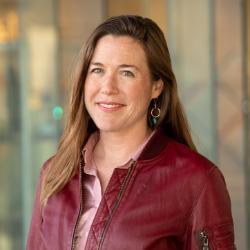
Elizabeth Tellman ’09 is Joint Assistant Professor in the Department of Hydrology and Atmospheric Sciences and in the School of Geography, Development, and Environment at the University of Arizona. Her research seeks to address the causes and consequences of global environmental change for vulnerable populations, with a focus on illicit activities, flood risk, water scarcity, and land use change. She is the co-founder and Chief Science Officer at Cloud to Street. She also runs a lab called the Tellman Lab that uses "data driven approaches to understand human environment change, and assess the potential for new technologies to help reduce risk with and for marginalized populations." Tellman has published widely including recent papers on "Sensitivity to Data Choice for Index-Based Flood Insurance" in the International Journal of Geographical Information Science and "For Remote Sensing in Political Geography: Scalar Flexibility, the Ethics of Exposure, and Critiques of the State" in the book Political Geography in Practice. She received a Ph.D. from Arizona State University; a master's degree from the Yale School of Forestry and Environmental Science; and a bachelor's degree in 2009 from Santa Clara University. While at SCU, Tellman was a Hackworth Fellow at the Markkula Center for Applied Ethics.
